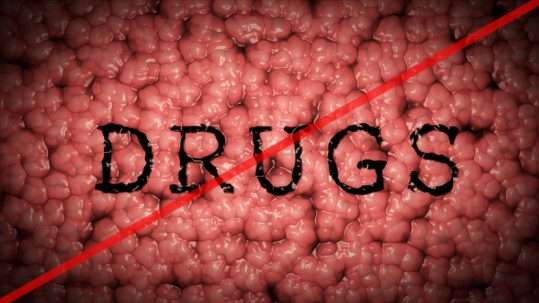Drug addiction is essentially craving for drugs intensely, so much that a person loses control over its use, and continues to use it, despite the adverse consequences. Drug addiction can have an adverse effect on the brain because it destabilizes the way pleasure is registered, and then goes on to corrupt other regular drives like motivation and learning.
Drug addiction wields a long and powerful influence on the brain, and even though overcoming it is possible, the process is typically long, slow, and tough. It took years for researchers to get to it, but it’s possible.

What causes drug addiction?
Over the years, both experts and regular people have maintained the belief that alcohol and powerful drugs are the strongest levels of addiction. Statistics show that about 23 million Americans—are addicted to alcohol and drugs and that the top three drugs causing addiction are marijuana, opioid (narcotic) pain relievers, and cocaine.
Today, it’s generally accepted that drug addiction is a chronic disease that changes not only the brain structure but the total function. So, the same way that cardiovascular diseases damage the heart and how diabetes weakens the pancreas is the same way drug addiction hijacks the brain. The brain typically goes through a number of changes, starting with recognition of pleasure and concluding with a drive toward compulsive behavior.
The brain will register all pleasures the same way, and it doesn’t matter if it originates from a psychoactive drug or a good meal. Pleasure has a distinct signature in the brain, which is the release of the neurotransmitter dopamine found in the nucleus accumbens. That side of the brain is more often than not referred to as the brain’s pleasure center.
Why is drug addiction so intense?
Drugs like nicotine and heroin that are usually abused can cause a predominantly powerful surge of dopamine in the nucleus accumbens. What determines whether the use of a drug will lead to addiction is directly dependent on the speed with which it encourages dopamine release, the force of that release, and the dependability of that release.
Sometimes, even when the same drug is taken in through a different mode can still influence the likelihood of causing addiction. So, whether a drug is smoked or injected intravenously, rather than swallowing it as a pill, it’ll still produce a faster and stronger dopamine signal and will most likely lead to drug abuse.
Addictive drugs provide leeway to the brain’s reward system by eroding the nucleus accumbens with dopamine. With time, the pleasure associated with an addictive drug subsides. Yet, the memory of the desired effect and the continuous need to recreate it will persist. At this point, it’s almost safe to assume that the normal machinery of motivation in a person no longer functions.
Constant abuse of drugs can cause the brain to act differently, which can have an effect on general life activities. If you need drug rehab in San Diego, Pacific Bay Recovery is here to help you all the way!

